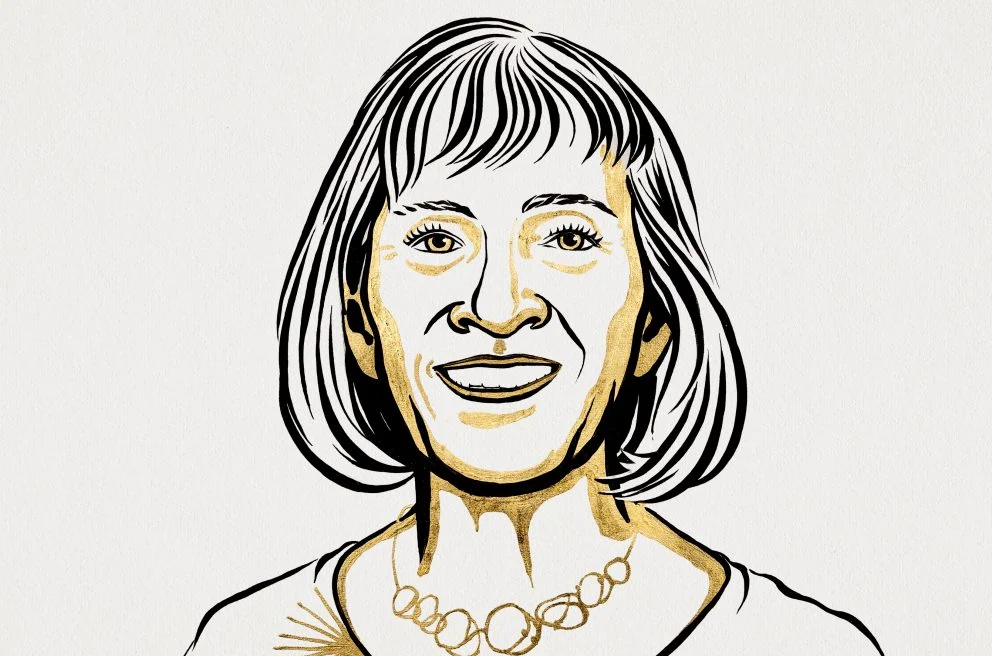Claudia Goldin wins economics Nobel for women’s labor history research
The third woman to win the award illuminates workforce gender gap
Olivia Gieger • October 9, 2023

An illustration of Claudia Goldin: winner of the 2023 Nobel Prize in Economics. [Credit: Niklas Elmehed © Nobel Prize Outreach]
Claudia Goldin has won the 2023 Nobel Prize in economics, for her research on women in the labor force through history. Her research tracks changes in women’s participation and the causes of the existing gender gap.
Goldin, a professor of economics at Harvard University, is the third woman to receive the award.
While 80% of men of working age around the world are active in the workforce, only 50% of women are, the Nobel presentation explained. The women who do participate in the workforce earn an average of 13% less.
Her research illustrates a “U-shaped” pattern of women’s participation in the labor market over the past 200 years, showing that women’s role in the workforce has not increased linearly through history. Instead, it has dipped and increased due to a range of variables, such as the stigma around factory work in the mid-1800s or the introduction of the birth control pill in the 1980s.
She explains this with a see-saw framework of how women make decisions on work, with paid participation in the labor force on one end and unpaid labor in the home on the other. Her work shows that this gap often begins with the birth of a woman’s first child.
“For me, she studied something that many people simply decided not to study before because they didn’t think these data existed. How can we study women in the labor market in the 1800s?” said Randi Hjalmarsson, a member of the Committee for the Prize in Economic Sciences in Memory of Alfred Nobel, who presented the award. “When she was doing this work 30 years ago, she was way before her time in coming up with these historical statistics.”
Hjalmarsson stressed that Goldin’s work does not outline any policy recommendation, but she compared the work to studying an illness before prescribing a treatment.
“I think one of the important takeaways for me is all of the research that she has inspired,” Hjalmarsson added. “She has inspired many researchers to study these questions in the US and other countries, of ‘What are the effects of policy on these gender gaps?’ So I think there’s a lot for us to learn in the future going forward.”